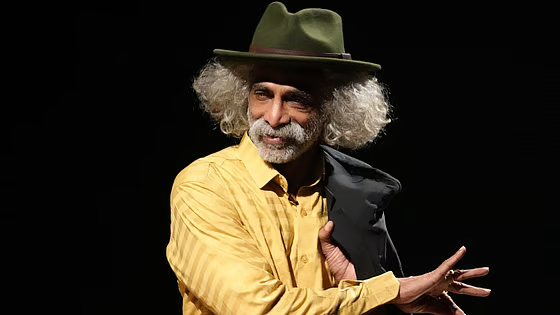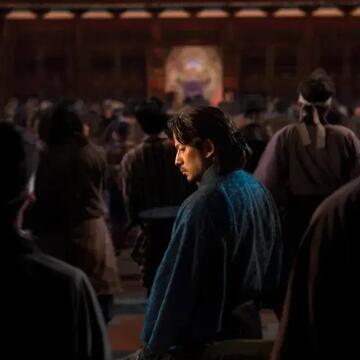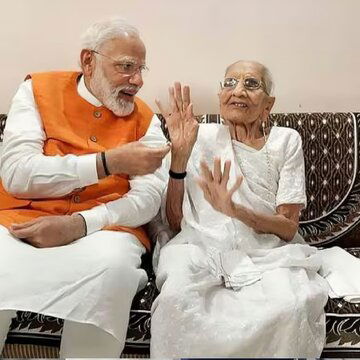The play Piyakkad will be staged on November 27 at the Kolkata Centre for Creativity’s amphitheatre as part of the Ami Arts Festival. Poetry runs through every layer of this production. In this single-character drama, Makarand Deshpande flees, collapses, shatters like glass, and then attempts to gather himself again.
Yet this escape cannot be dismissed as mere escapism. To label it that would be to step away, and Makarand never allows his audience to drift off. He binds them to every layer of the performance, drawing them into his being. Participation, involvement, and immersion form the core of his theatrical vision. It is fitting that the theatre company he has led for nearly three decades is called the Ansh Theatre Group—born in Mumbai, now resonating across India.
ALSO READ | IFFI to honour Dharmendra, festival cancels 4K screening of Sholay - The Final Cut
Still, Makarand does not follow the familiar currents of mainstream entertainment. Intimate self-narration often becomes the heart of his work, and he moves effortlessly between the real and the surreal. Over the past twenty years, he has created more than thirty plays. Among them, 'Sir Sir Sarla' remains the most discussed. In that story, Sarla loves Professor Palekar as a friend, philosopher, and guide—a love soaked in intensity. Her bond of affection and resentment with Phanidhar complicates the narrative, where three lives weave together like a quilt, forming a new texture of existence.
Makarand constantly searches for something beyond the obvious in theatre, just as he does in Piyakkad. Here, the line between an ordinary drunkard and a piyakkad stretches like a fragile thread, where the slightest imbalance could turn the drama into melodrama. The literal meaning of piyakkad may be “drunkard,” but while all piyakkads drink, not all drinkers qualify as piyakkads. Makarand threads alcohol with a deep, resonant life-melody in this play—something refreshingly new in the landscape of Bengali theatre.
ALSO READ | Usha Uthup’s soulful retro night blends nostalgia, memories, and music
Historically, the figure of the drunkard in Bengali theatre once played a role in social reform movements. By the early nineteenth century, alcohol addiction had become prevalent among babus and gentlemen. Works like Bhabanicharan Bandyopadhyay’s Nabababubilas and Parichand Mitra’s Mad Khaowa Bado Daay Jat Thakar Ki Upay portrayed this with humour.
As the problem deepened, social resistance grew, and theatre became a tool for raising awareness. Names themselves carried anti-liquor messages—Maheshchandra Das De’s Neshakhuri Ki Jhakamari, Nabinchandra Chattopadhyay’s Barunibilas, the anonymous Sudhakar Bishamay, Gyanadhan Vidyalankar’s Sudha Na Garal, or Ramchandra Datta’s Mataler Jananir Prolap. Many found popularity, although much of it arose from a morally driven society. Only Dinabandhu Mitra’s Nimchand in Sadhaber Ekadashi struck a somewhat different chord.
ALSO READ | The Amazing Spider Man re-releases in movie halls near you | Dates, showtimes, cast and more
Even that era’s most impactful plays emerged from the temperance movement, perhaps its finest creations. Nimchand—considered the most compelling drunkard in Bengali theatre—cries out, “Ha, Jagadishwar… have you struck me down with sinful liquor in hand?… The mother who once held me to her chest and felt blessed kissing my face now smites her forehead, calling herself unfortunate seeing me…” Nimchand is the finest drunkard in Bengali dramatic literature, but he is not a piyakkad. His relationship with alcohol is rooted in social and moral conflict.
In contrast, Makarand’s character is intoxicated by drink, yet it is his inner poetry that turns him into a piyakkad. And the chance to witness this transformation up close is arriving very soon.










